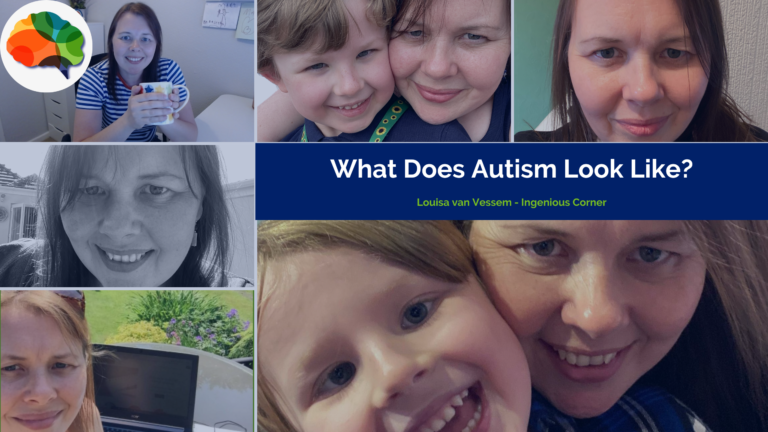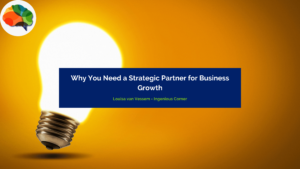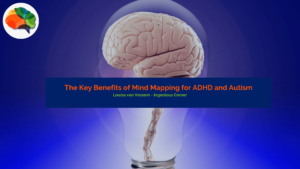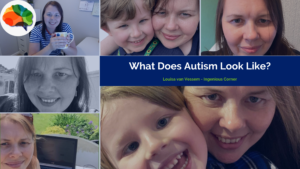It felt like a tough battle to get my son’s autism diagnosis but the longer the battle went on, the more I recognised more of myself in him. I remember speaking to someone from a local autism charity that supported parents about my son and I spoke about the strategies I’d implemented to help and support him and she asked if I’d ever been assessed for autism.
That question planted a seed and after finally receiving my son’s diagnosis, I decided maybe I should look a little more into whether I would meet the requirements for a late autism diagnosis and what it could mean for me.
How It Started
This might not be the same for everyone but I consider myself very lucky with my late autism diagnosis because it happened relatively quickly and in hindsight, I suspect it was about timing. I completed the initial forms around June/July 2022 via the local autism charity and in December 2022, I received confirmation of my late autism diagnosis, so it was really quick and that’s extremely uncommon.
Sadly, in the first quarter of 2023, the charity closed down because of a lack of funding and I suspect that around November 2022, they were trying to close everything down and that’s why my paperwork was passed onto an outside agency.
The Initial Process
Initially, I had to complete various questionnaires and each answer was scored. Depending on the outcome of my score would depend on whether or not I would be passed on to this stage.
The paperwork I had to complete included:
- Developmental Questionnaire
- RAADS 14 Questionnaire
- Sensory Profile
Completing the paperwork made me curious to see what other online forms I could find so that I could quickly find out my scores. It’s well-known that women typically mask their symptoms, so after completing the forms, I needed to consider what my automatic answer would be rather than what I have taught myself based on masking. If you’re reading this and thinking, you’re also curious about whether you might be autistic, look at this site for some free online tests. There are also some tests on there for you to complete based on your child’s traits and behaviours.
I must have passed the different tests because, in November 2022, I received an email asking me if I was still interested in going through the process because the outsourced company, Clinical Partners asked if I would like to book my assessment dates. Clinical Partners also have free tests available on their website and whilst looking for my report for this blog, I came across a free test I did of theirs in March 2022.

The Assessment Process
The assessments took place over Zoom in 2022. The first one was to cover my childhood, and this was the revised ADI-R assessment. Usually, you would have a parent join the assessment but I chose not to because I recognise that I probably masked a lot more as a child and I have a photographic memory, so I knew it would help.
The second assessment took place a couple of weeks later and this was the ADOS-2. This was much more interactive and I was required to describe scenes in pictures and the woman running the session asked me lots of questions to elaborate on my answers.
During both sessions, they observed the way I spoke, how I articulated myself, my comprehension, and my body language. Both sessions took 2-3 hours and I felt pretty exhausted at the end of them. At the end of the second session, the woman running it said that she suspected I was autistic but would need to write up her report and it would be reviewed alongside the report that a different woman wrote from the first session.
Actually Autistic
I think I received a call to say I am actually autistic just before Christmas 2022. Despite going through the process and completing free online tests that had indicated that I was displaying autistic traits, it was still a surprise. After all, at that time is was 43 years old and until a year before that, I had never considered I might be.
It’s only now (September 2023, now aged 44) that I am connecting the dots properly. It’s all making more sense now because, unlike a lot of autistic people, I have been fortunate to have not faced the same challenges and anxieties that many autistic people do. I look at my son who is almost seven years old and although I see myself in him, he has lots of struggles and anxieties, whereas I never did.
After receiving my diagnosis over the phone, they sent me some links to resources but quite honestly I didn’t look at them. What made a huge difference was watching the Chris Packham programme called Inside Our Autistic Minds on BBC2. If you haven’t watched it, I highly recommend it. Very different stories from real-life people and made me think about my quirks.
It’s A Spectrum!
Autism is a huge spectrum and it’s why I am so passionate about sharing my story and raising awareness about autism and how everyone is so different. Unfortunately, there is often judgment based on negative perceptions and this is down to what is shown on television and social media but it’s important to remember everyone is different and that also means the support that is needed is also different.
Having said all that, it is important to acknowledge that there are those who require different levels of support and I asked ChatGPT to categorise the differences:
- Minimal Support: Some individuals with autism are highly independent and may require minimal support. They can manage daily tasks, social interactions, and work-related activities with little to no assistance.
- Moderate Support: Many autistic individuals benefit from moderate levels of support. This may involve assistance with certain tasks, social skills training, and accommodations in education or employment settings to help them succeed.
- Substantial Support: Some individuals with autism require substantial support in various areas of life. This could include help with daily living skills, communication, and managing sensory sensitivities. They may need a structured environment and ongoing guidance.
- Intensive Support: For those with more significant challenges, intensive support is necessary. This can involve 24/7 care, specialised therapies, and assistance with all aspects of daily life, including personal care and safety.
- Individualised Support: It’s essential to recognize that each autistic person is unique, and their support needs should be highly individualised. Tailoring support to their specific strengths and challenges is crucial for their well-being and development.
- Transition Support: As autistic individuals transition through different stages of life, they may require varying levels of support. This includes transitioning from school to work, from living at home to independent living, and from one life stage to another.
Actually Autistic Entrepreneurship and Self-Employment
I started my business in 2017 and since then I have realised more and more that I am the real me. Little did I realise I was masking because in the workplace I followed the rules and did what I was supposed to do in the roles that I held.
Since having a child and working for myself, I have learnt so much about how I think and work, along with what matters to me. It’s cliche to say this but I am passionate about making a difference and I embrace the way I think and I’m proud to know I’m autistic because I’m creative, pragmatic, strategic and analytical and I use those attributes across my business and with my little dude.
I never would have thought that a late autism diagnosis would make me re-evaluate my life.
I’m not only autistic, I’m also solo parenting and I have numerous health conditions and that inspires me to take a holistic approach to what I do and how I help clients. It also inspired me to create my online community called InclUSion because the world isn’t black and white. It’s much more exciting and interesting and it motivates me to continue being creative and consider different ways in which I can offer support and make a difference to people.
During the autumn of 2023, I launched an Etsy store selling ADHD and autism-friendly digital products. The inspiration for the store stems from working with clients who are neurodiverse, friends who have autistic children and/or received a late diagnosis and of course, my personal experiences with my son and my diagnosis. The products are aimed at adults and children, they also include a SEN About Me Workbook. Find out more about the store.
If you’d like to know more about what I do and how I can help you, book a free 20-minute call with me.
About Louisa van Vessem
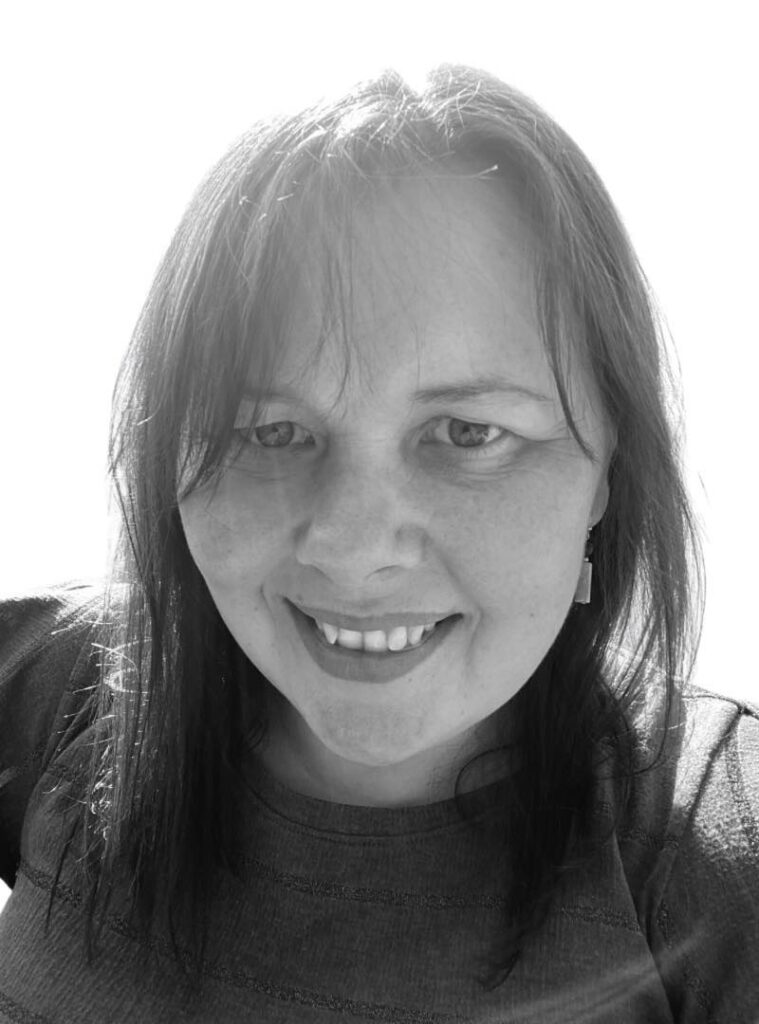
Hey, I’m Louisa – the wingwoman for creatives, leaders and organisations that are ready to bring their vision to life and feel excited about what’s next!
Think of me as your go-to for gaining clarity, problem-solving, creative strategies, mentoring and being more inclusive because it’s time to ‘cut through the noise’.
I love getting to know people who are ready to take action and make a difference. If this sounds like you, I’d love to hear from you! Let’s chat.
Let’s connect on social media
Don’t worry, I’m not spending lots of time on social media, I repurpose content across channels at different times.
LinkedIn | Instagram – Ingenious Corner | Pinterest | YouTube
